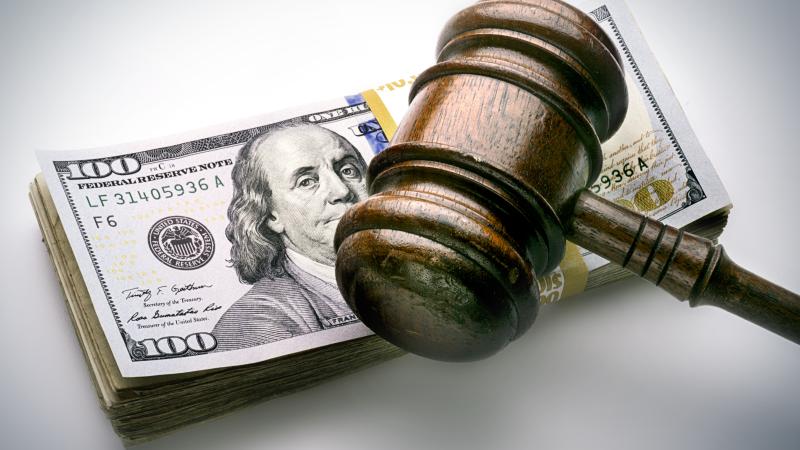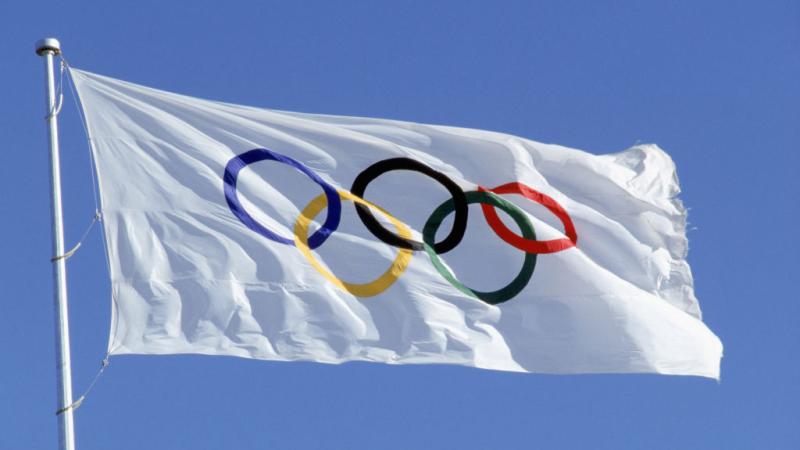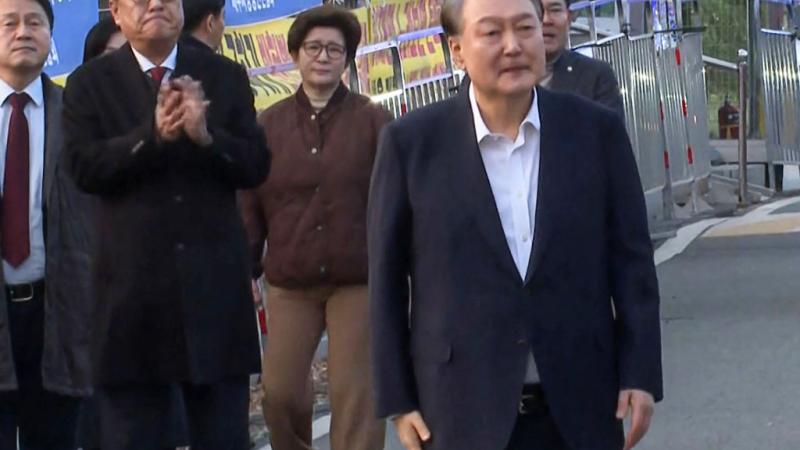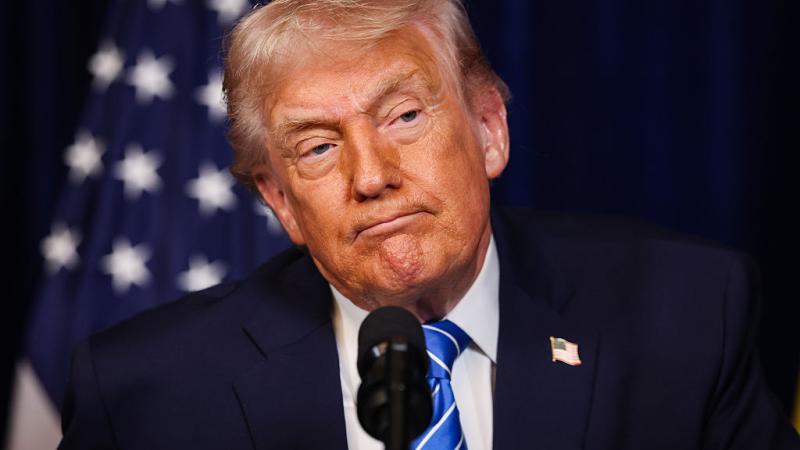Trump IRS seeks to block whistleblower trial that alleges Clinton Foundation tax irregularities
U.S. Tax Court judge had tentatively set a Dec. 1 trial, and the petitioners are facing opposition from Trump's IRS, largely on the basis of procedural and administrative law. Future filings and a possible trial may disclose more facts about the Clinton Foundation that have not yet been tested as true or false.
A U.S. Tax Court judge has tentatively scheduled a Dec. 1 trial allowing two whistleblowers to show they were wrongly denied an award for identifying alleged tax irregularities inside Bill and Hillary Clinton’s foundation, but the case is meeting resistance from an unexpected source: the Trump administration.
The Internal Revenue Service under Trump filed a motion last week in the case brought by retired federal agent John Moynihan and private fraud expert Larry Doyle seeking to dismiss the case. Judge Alina I. Marshall set a deadline of September 15 for the petitioners to respond to that motion. The IRS also filed leave for an extension of time to file the Administrative Record with the court.
IRS says plaintiffs lack standing to sue
The agency argued that, as a matter of administrative and procedural law, the judge should not let the case proceed to trial because after an initial review, the IRS declined to look into the whistleblower complaint and, therefore, the plaintiffs don’t have standing to sue.
“In this case, the Whistleblower Office denied petitioners’ claims because the petitioners’ claims were never considered in an IRS action. Here, the Whistleblower Office forwarded petitioners’ claims to a classifier,” the IRS motion to dismiss argued last week “Following the classifiers’ preliminary review, the Classifier declined to forward petitioners’ claims to exam and recommended that it be forwarded to the CI [criminal investigation] division.
“The IRS did not proceed with any potential action when it investigated petitioners’ claims,” the IRS added.
Obama's Deputy Attorney General: "Shut it down"
The effort by the IRS to thwart the whistleblower case from going to trial was filed the same week Just the News reported that a bombshell memo recently uncovered by FBI Director Kash Patel shows the Obama Justice Department and former FBI Deputy Director Andrew McCabe roadblocked three separate probes into possible pay-to-play corruption allegations against the Clinton Foundation.
“Shut it down,” Obama Deputy Attorney General Sally Yates was quoted as saying in March 2016 in the memos.
You can read that memo here:
Spokespersons for the IRS, the Treasury Department and the White House did not immediately return requests for comment on Sunday.
The Clinton Foundation has long denied it did anything wrong and said any suggestion of wrongdoing was politically motivated.
Doyle told Just the News the latest twist is just another example of the resistance the government has displayed to investigating the Clinton Foundation over many years.
“Not surprising that the IRS would seek to dismiss our case in this fashion simply because that is the same tactic the IRS deployed in our initial case ongoing now almost 6 years in US Tax Court and growing more serious everyday," he said.
“The simple fact is the more the American public learns about the Clinton Foundation as it has in recent days, the more it is entitled to know all the truth and facts involved," he added.
The IRS court filing gives the public some of the most detailed information yet about what Moynihan and Doyle alleged, showing the whistleblowers raised concerns similar to what the FBI was investigating.
Acting as an unregistered foreign agent, funding overseas abortion
One of those concerns was that the Clinton Foundation and its sister organizations were operating as an agent for foreigners who paid it money and that it failed to register under the Foreign Agent Registration Act (FARA).
“The company has not registered under FARA and receives funds from and works on behalf of foreign governments,” one of the summary documents from the IRS's initial review stated. The name of the company was redacted but sources said it referred to an affiliate of the Clinton Foundation
Another allegation the IRS memos mentioned for investigation was that the Clinton Foundation through one of its allies contributed to activities not allowed by a tax-exempt status, including abortions overseas. The ability of U.S. charities to fund abortions overseas is limited by a patchwork of U.S. laws and policies, particularly the Helms Amendment and the Mexico City Policy.
“Documents received from India indicate the company was approved for information purposes related to family planning,” an IRS memo summarizing the allegations said. “The company operates outside of those purposes stated to the I.R.S. in the form of commercial for-profit condom and associated products retailers, abortion procedures for profit and sundry other commercial enterprises.”
Non-Profit in the U.S., but For-Profit overseas?
A third allegation was that one of the Foundation's allies declared it was a for-profit entity overseas in certain countries while seeking 501c3 non-profit status in America.
One section of the whistleblowers' complaint was marked "Tax Fraud." The complaint went on to say "The company has been recognized Internationally by foreign governments as a for-profit enterprise and as such is reporting revenues to those countries either in the form of profits or losses [...] Upon review, the foreign operations have balance sheet loans payables to the 501c3 headquartered in the U.S.A. yet 990 reviews here show no loan receivables."
“This is likely due to the nature of the 501c3 status of the U.S.A. entity being a corporation acting as a public charity and not a private foundation making grants. In either situation, 501c3 operations cannot have quid pro quo components and the idea of for-profit loans would violate such tenets,” it added.
The IRS motion to dismiss adds new intrigue to a case that first surfaced nearly eight years ago when Doyle and Moynihan, two respected forensic financial investigators, revealed the existence of their 2017 IRS whistleblower complaint against the foundation during a 2018 congressional hearing.
Moynihan and Doyle testified to a House committee in December of that year that they believed the foundation wrongly operated as a foreign lobbyist by accepting overseas donations, with the purpose of influencing U.S. policy.
The foundation "began acting as an agent of foreign governments early in its life and throughout its existence," Moynihan testified at the time. "As such, the foundation should've registered under FARA (Foreign Agents Registration Act). Ultimately, the foundation and its auditors conceded in formal submissions that it did operate as a (foreign) agent, therefore the foundation is not entitled to its 501c3 tax-exempt privileges as outlined in IRS 170 (c)2."
The foundation has acknowledged that past internal audits revealed compliance problems with some of its practices but insisted those have been fixed and that it always complied with the law, strongly disputing the whistleblowers' allegations.
In all, Moynihan and Doyle filed two complaints against the Clinton Foundation, the latter which included some of its allies. It is that second case that is slated for trial in December.
In the first case back in October 2020, Tax Court Judge David Gustafson first allowed the whistleblowers' case to proceed, rejecting an IRS motion for summary judgment. He cited nonpublic evidence that the FBI and IRS may have worked jointly on a criminal investigation focused on the Clinton Foundation. Months later, the judge suggested the IRS Whistleblower Office may have evidence it had not disclosed to the court in the case.
Durham Report shows at least four ongoing investigations, all shut down
Some of that evidence burst into public in 2023 when former Special Counsel John Durham divulged in his 306-page final report that the FBI had at least four ongoing investigations during the 2016 election into Bill and Hillary Clinton’s business and purported philanthropic activities. The known probes involved the bureau's Washington, New York and Little Rock, Ark., field offices.
Three of those probes were started during the 2016 election campaign, and were focused on allegations that the Clinton Foundation was at the center of "criminal activity" that included "fraud and corruption allegations."
One of the most serious allegations was that "large monetary contributions were made to a non-profit, under both direct and indirect control of the federal public official, in exchange for favorable government action and/or influence," Durham wrote.
"Beginning in late 2014, before Clinton formally declared her presidential candidacy, the FBI learned from a well-placed [source] that a foreign government was planning to send an individual to contribute to Clinton’s anticipated presidential campaign, as a way to gain influence with her should she win the presidency," he also said.
All four of the probes were shut down as the 2016 presidential election was drawing to a close, and senior FBI and Justice Department officials were involved in the effort to slow or stop the probes, Durham wrote, based on evidence he collected from cooperating FBI agents.
"Both senior FBI and department officials placed restrictions on how those matters were to be handled such that essentially no investigative activities occurred for months," he noted.
You can read the Durham report here.
File
Gustafson’s order gave Moynihan and Doyle a fresh opening to incorporate Durham’s bombshell allegations in their court filings.
The Facts Inside Our Reporter's Notebook
Documents
File
Links
- Just the News reported that a bombshell memo
- Foreign Agent Registration Act
- Moynihan testified at the time
- foundation has acknowledged that past internal audits revealed compliance problems
- nonpublic evidence the FBI and IRS may have worked jointly on a criminal investigation
- Berenblatt vs. Commissioner of the IRS














